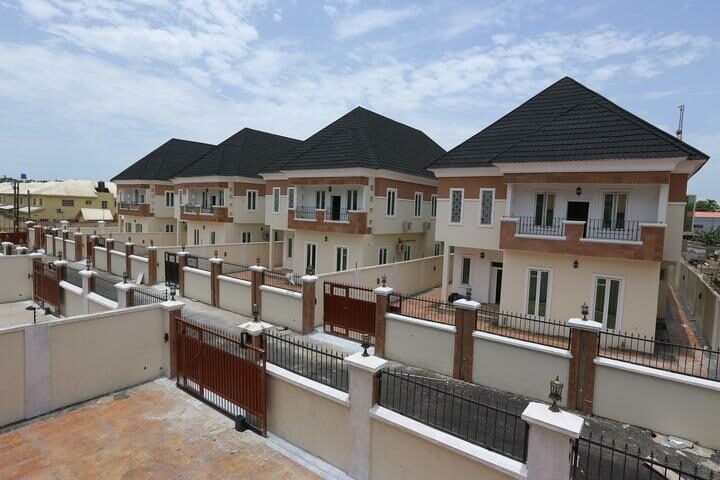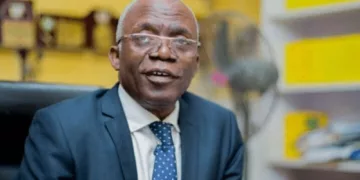Nigeria’s real estate market is witnessing a major shift as investors and developers increasingly abandon the Build-to-Rent model for the faster, more lucrative Build-and-Sell approach.
Stakeholders said the slow pace of returns and growing risks associated with rental investments could worsen the country’s housing deficit.
Developers argued that it makes little business sense to wait for years to recoup investments through rent collection when properties can be sold outright for immediate profit.
They cited numerous challenges with the Build-to-Rent model, rising rent defaults, costly repairs, impending rent control legislation, prolonged eviction processes, and the risk of non-paying tenants as major deterrents.
According to industry operators, these factors have made renting out homes a cumbersome and often frustrating experience. “The slow returns, frequent rent defaults, and lengthy litigation processes make Build-to-Rent unattractive,” one developer told LEADERSHIP.
Many estate developers shared with LEADERSHIP that recovering tenant rents has become increasingly difficult. Many property owners, they said, are entangled in court disputes with tenants over unpaid rents, making it harder to generate income and reinvest.
However, beneath this rush to sell rather than rent lies a more profound economic concern, the erosion of Nigeria’s rental market. Analysts warned that the shift could worsen the housing deficit and push affordable rentals further out of reach for working Nigerians.
Property analysts explained that Build-to-Rent projects expose developers to debt crises. They invest heavily in construction only to earn slow, depreciating returns through rent collection, often compounded by tenant defaults.
In major cities like Lagos, Abuja, and Port Harcourt, developers now complete estates, sell out units within months, and immediately move on to new projects. Hardly anyone is thinking long-term anymore, an analyst noted.
For developers like Mr Kehinde Alonge, inflation and the naira’s depreciation have made long-term rental strategies untenable.
He said that building materials now cost almost double what they did just a few years ago. ‘Cement that once sold for N2,500 now goes for over N9,500. Iron rods, tiles, and finishing materials are priced like luxury imports.’
According to Alonge, price volatility makes it risky to tie down capital in properties that take years to yield returns. “A developer who sells a duplex in Lekki for N150 million today can reinvest the capital immediately. But renting it out for N6 million a year could take over 20 years to recover the investment, assuming rent stays constant and the property never stays vacant,” he explained.
He admitted that, while the Build-and-Sell approach may make sense from a business standpoint, it could be unsustainable for the housing market in the long term.
Meanwhile, ordinary Nigerians are struggling to find affordable rentals. Soaring rents are pushing many families to the outskirts of cities and rural areas, where they have limited access to jobs, infrastructure, and schools.
Checks by LEADERSHIP revealed that some landlords are frustrated with rent defaults by long-term tenants. One landlord said, “I’m tired of tenants who owe for years without paying. I’m seriously considering evicting them and selling the property instead.”
Another group of property owners in Ogba, Ikeja, Surulere, Igando, Ikorodu, and parts of Ogun State lamented that some tenants live rent-free for up to 18 months before abandoning the property entirely.
They also blamed weak tenancy laws, which make it difficult to recover property from defaulters. One landlord complained that the law doesn’t protect landlords enough.
Immediate past chairman of the Nigerian Institute of Estate Surveyors and Valuers (NIESV), Gbenga Ismail, urged investors to redefine what ‘smart investing’ means in Nigeria’s property market ,adding that, “Building and selling may offer quick returns, but building and holding builds real estate wealth.’
“Rental income may not seem glamorous, but it’s consistent, scalable, and sustainable. A property that earns N6 million today could earn N15 million in 10 years, while its value quietly doubles.”
Chairman of the Association of Capital Market Valuers (ACMV), Chudi Ubosi, warned of the dangers of an overly speculative market.
“When profits depend entirely on finding new buyers, the market becomes fragile,” he said. “If demand slows because of inflation, tighter credit, or political instability, property values can stagnate or collapse, ” he said.
Ubosi noted that several estates in Abuja, Lagos, and Ogun State have already suffered this fate, with empty units and sluggish sales eroding investor confidence.
He also emphasised that while Nigeria’s large renting population should ordinarily attract investors, worsening economic conditions and rising defaults have changed the game.
“Rents are high, and so is hardship. Families can barely feed, much less pay rent,” Ubosi said. “Developing new rental properties today is a tough call, returns are low and risks are high.”
CEO of Greenchell Homes, Ezekiel Oke Taiwo, believes government intervention is key to restoring balance.
He urged reforms in property and tenancy laws to ensure faster dispute resolution, better tenant databases, and incentives for long-term leasing. “If landlords have confidence that the system protects them, more will be willing to rent instead of sell,” he said.





